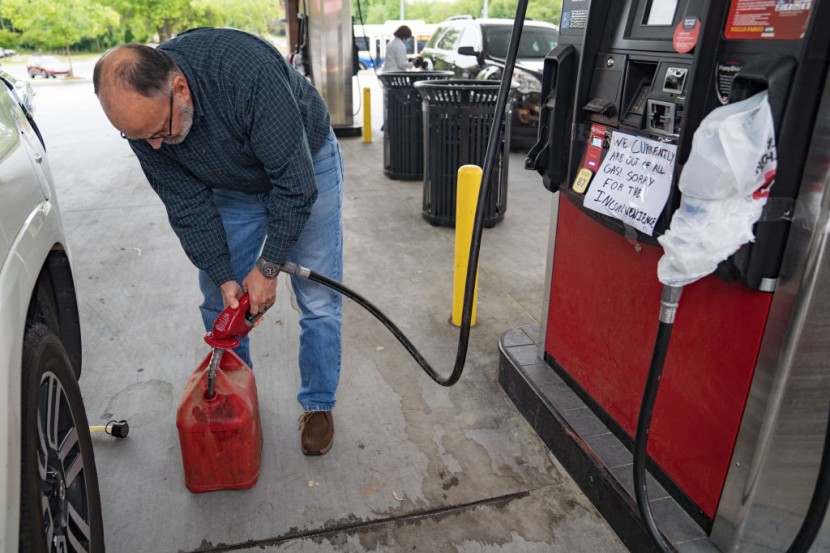
Colonial Pipeline, the nation's largest fuel pipeline, reopened on Wednesday, just days after a group of hackers forced it to shut down. Due to distribution issues and panic buying, the disruption triggered long queues at gas stations throughout the Southeast, depleting stocks at thousands of stations.
Colonial Pipeline says no gas shortage, only problems in gas deliveries
Late Wednesday, Colonial began resuming pipeline operations, stating that all pipes, including some lateral lines running manually, would return to regular operations, as per the AP News. However, the company said that it would take some days for deliveries to return to normal. Drivers in some Southeast states have reported having gas stations with little to no gas.
While there was no gasoline shortage, there was a challenge in delivering the fuel from Gulf Coast refineries to the states that needed it, and authorities scrambled to find alternative routes. The Colonial Pipeline, which transports about 45 percent of the fuel used on the East Coast, was targeted by hackers on Friday, who locked computer systems and demanded a ransom in exchange for their release. Once again, the attack sparked questions about the weakness of the country's vital infrastructure.
Panic buying after Colonial Pipeline cyberattack
Outside of gas stations, lines have emerged. Officials have cautioned against putting gas in plastic bags. Many gas stations also imposed restrictions on sales and advised consumers not to be alarmed.
The cyberattack on the Colonial Pipeline caused gasoline transportation in the Southeast to be temporarily halted, threatening to trigger short-term gas shortages. Although analysts and government officials have urged drivers not to hurry to gas stations, panic buying has intensified, potentially exacerbating shortages and rising prices.
"This is the worst panic buying for fuel since the Carter Administration," said Tom Kloza, the Oil Price Information Service's global head of energy analysis, as per USA Today. Outages at more than 10,000 gas stations, according to Kloza, are creeping through the East Coast like a bad rash. People in the Florida peninsula, New Jersey, and Pennsylvania are buying fuel at twice the average cost, which is contributing to the crisis.
The pipeline, which transports approximately 2.5 million barrels of gas, diesel, heating oil, and jet fuel every day, is vital to the US petroleum infrastructure. It also spans 5,500 miles, transports almost half of the East Coast's gasoline supply, and provides jet fuel to airports such as Atlanta and Baltimore.
According to The Sun, gas prices have risen since the pipeline was shut down on Friday, with the national average surpassing $3 per gallon for the first time since 2014. Some parts of the Southeast are already running out of gas as residents rush to the gas station in panic.
On Wednesday, 65 percent of North Carolina gas stations were out of gas, with over 43 percent of stations in Georgia, South Carolina, and Virginia running out of supply. Officials said they formed a comprehensive federal response to bring the pipeline back online because of its significance. The FBI, Department of Homeland Security, and Department of Defense collaborated to get the business up and running in no time.
Related Article: US Identifies Criminal Group in Colonial Pipeline Hack; Gas Shortage, Price Hike Imminent Amid Cyberattack
@YouTube








